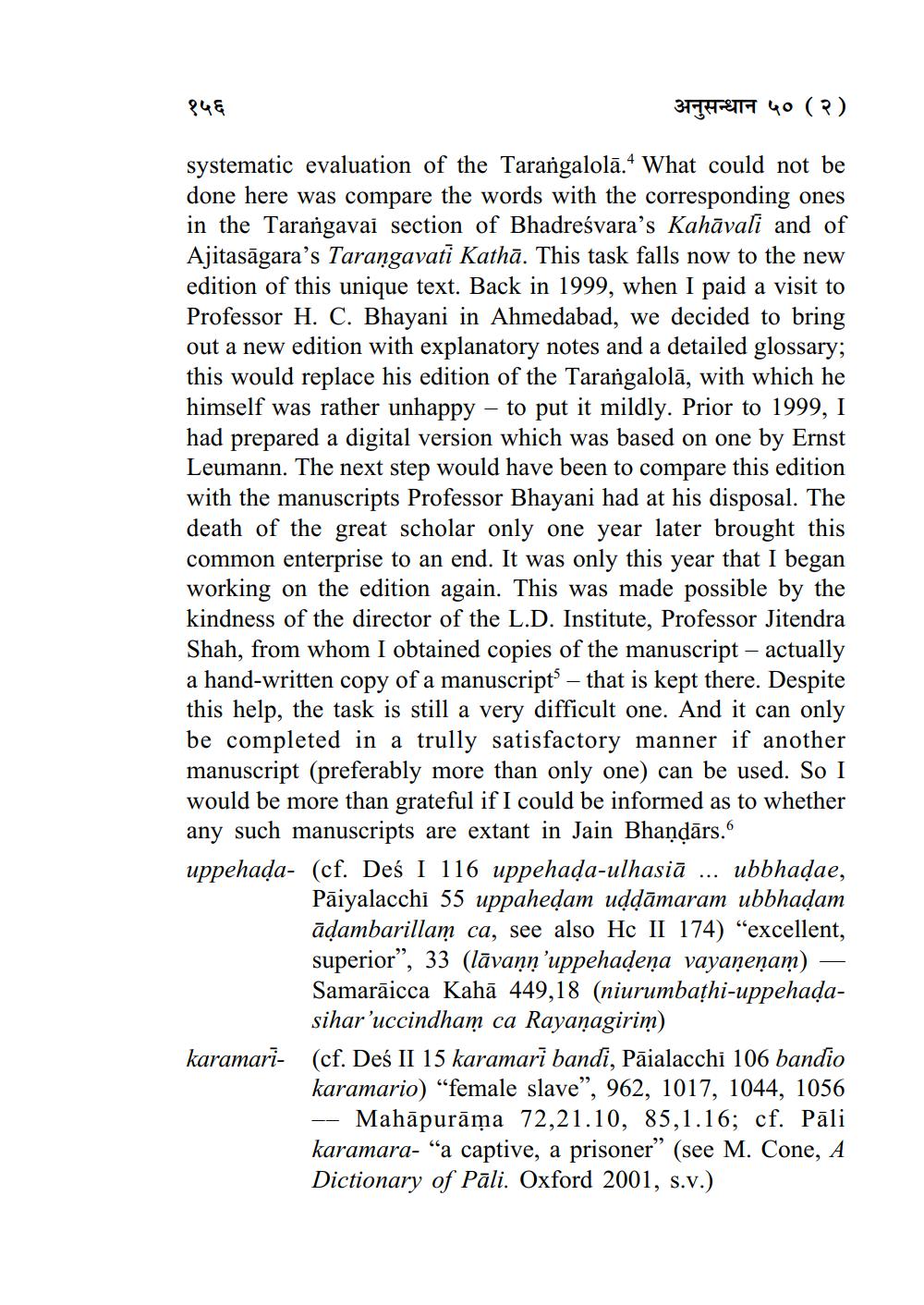________________
१५६
अनुसन्धान ५० (२)
systematic evaluation of the Tarangalolā.* What could not be done here was compare the words with the corresponding ones in the Tarangavai section of Bhadreśvara's Kahāvali and of Ajitasāgara's Tarangavati Kathā. This task falls now to the new edition of this unique text. Back in 1999, when I paid a visit to Professor H. C. Bhayani in Ahmedabad, we decided to bring out a new edition with explanatory notes and a detailed glossary; this would replace his edition of the Tarangalolā, with which he himself was rather unhappy - to put it mildly. Prior to 1999, I had prepared a digital version which was based on one by Ernst Leumann. The next step would have been to compare this edition with the manuscripts Professor Bhayani had at his disposal. The death of the great scholar only one year later brought this common enterprise to an end. It was only this year that I began working on the edition again. This was made possible by the kindness of the director of the L.D. Institute, Professor Jitendra Shah, from whom I obtained copies of the manuscript – actually a hand-written copy of a manuscript – that is kept there. Despite this help, the task is still a very difficult one. And it can only be completed in a trully satisfactory manner if another manuscript (preferably more than only one) can be used. So I would be more than grateful if I could be informed as to whether any such manuscripts are extant in Jain Bhaņdārs. uppehada- (cf. Deś I 116 uppehaďa-ulhasiā ... ubbhaďae,
Pāiyalacchi 55 uppaheļam udļāmaram ubbhadam āļambarillam ca, see also Hc II 174) “excellent, superior”, 33 (lāvaņņ’uppehadeņa vayaņeņam) — Samarāicca Kahā 449,18 (niurumbațhi-uppehada
sihar 'uccindham ca Rayaņagirim) karamari- (cf. Des II 15 karamari bandi, Pāialacchi 106 bandio
karamario) “female slave”, 962, 1017, 1044, 1056 -- Mahāpurāma 72,21.10, 85,1.16; cf. Pāli karamara- “a captive, a prisoner” (see M. Cone, A Dictionary of Pāli. Oxford 2001, s.v.)




